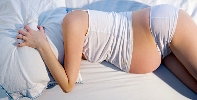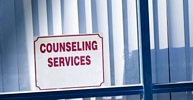If you have obstructive sleep apnea, chances are, you're likely to have some sort of an ear problem. There are a number of reasons why you're going to be prone to various ear problems, but in many cases, the problem is not actually coming from the ear. To better manage your ear issues, you first have to understand your ear anatomy, and the different types of inflammation caused by sleep apnea. In the last part of this article, I'll go over some tips to help you solve many of your ear-related issues.
What You Must Know About Ear Anatomy
The ear drum is a thin membrane that separates the middle ear cavity from the outer ear canal. Sounds waves vibrate the ear drum, which connects via a sophisticated lever and piston amplifier system that transmits sound waves to the inner ear. Normally, the middle ear cavity should have the same pressure as the outer ear canal. This is made possible by the function of the eustachian tube, which connects your middle ear cavity to the back of your nose. Whenever you swallow or yawn, your palatal and throat muscles open up the eustachian tube temporarily, equalizing pressure between the middle ear and the nose. You can think of the middle ear as a sinus—an out-pouching from the nose into an adjacent pocket of bone or soft tissue.
Whenever you go up an elevator or descend during a flight, the atmospheric pressure either goes up or down, and this creates either positive or negative pressure in your middle ear. With very slight pressure changes, you'll feels a bit of fullness and hearing loss, but with severe pressure changes, you may even have pain and discomfort. If you keep swallowing, then you'll keep popping open your ears. As a result, you'll feel anything from fullness, hearing loss, popping, clicking, buzzing, or even ringing. This is why it's recommended that you chew gum during descents in flights, or give the baby a bottle to feed.
Causes Of Inflammation
However, if you have any degree of inflammation in your nose, then additional swelling can prevent proper equilibration of air between your middle ear and nose. A number of different causes can aggravate swelling, including viral colds, allergies, weather changes, and even acid reflux.
You're probably very familiar with the effects that a simple cold or allergy can have on your nose and ears. In most cases, you'll have a few days of discomfort. But in certain situations, your cold or allergy may go away, but your ears will continue to be stuffed for days or weeks. Sometimes, the vacuum pressures that are created can cause fluid to accumulate, giving you what's called serous otitis media. Rarely, this fluid can get infected and turn into the classic bacterial infection or otitis media. Fortunately, not too many people have true bacterial infections—most never make it past the vacuum pressure or clear fluid stages.
A Vicious Cycle
If you don't have obstructive sleep apnea, the entire process can come and go within a few days to weeks. However, if you have sleep apnea, due to the additional inflammation that's created, a simple ear or sinus problems can linger for weeks, and sometimes even months for the following reason: Any additional inflammation in the nose or throat causes swelling which can aggravate more frequent obstructions, leading to stomach juices to come up into the throat and nose, including in the area of the eustachian tubes. Furthermore, frequent obstructions and arousals leads to an imbalance of your involuntary nervous system, where your nose is going to be overly sensitive, especially to weather changes (pressure, temperature, and humidity changes). This is called chronic or non-allergic rhinitis.
For some people using a CPAP machine can blow air into the middle ears, through positive pressure. This can be a frustrating issue that's difficult to cure completely.
Solutions For Your Ear Problems
So if you have obstructive sleep apnea and are prone to ear problems, what can you do? The first thing to make sure of is that you're treating your sleep apnea condition optimally. If your CPAP pressure is too low, or your dental device is undercalibrated, or your UPPP procedure was only partially effective, then you'll still have residual obstructive sleep apnea and are still feeling the effects of intermittent obstructions and arousals.
Second, make sure that your nasal breathing is optimal. By definition, your nasal passageways will be either narrowed, inflamed, or both. Having a chronically stuffy nose can create more of a vacuum effect downstream, which allows the tongue to fall back more often when in deep sleep, due to muscle relaxation. If you're using CPAP, then it's likely that your pressures may be too high, which can make it uncomfortable, and even blow air into your ears. Whether through vigorous saline irrigation, allergy avoidance, medications, or surgery, it's important to make sure you're able to breathe well through your nose.
Lastly, it's important to lower inflammation in your throat by making sure you're not eating within 3-4 hours of bedtime. Having even 2-3 apnea or hypopnea episodes per hour, although acceptable, can still suction up juices into your throat. Since you're going to suction up normal stomach juices anyway, it's important to keep the acidity and juice volume as low as possible. The same rule applies to alcohol, since not only does it produce more stomach acid, it also relaxes your tongue and throat muscles, causing you to stop breathing more often.
Ear problems are an inevitable part of having obstructive sleep apnea. By knowing what can cause ear problems and how you can deal with it, you can minimize the discomfort to a point where it's tolerable or minimal.



